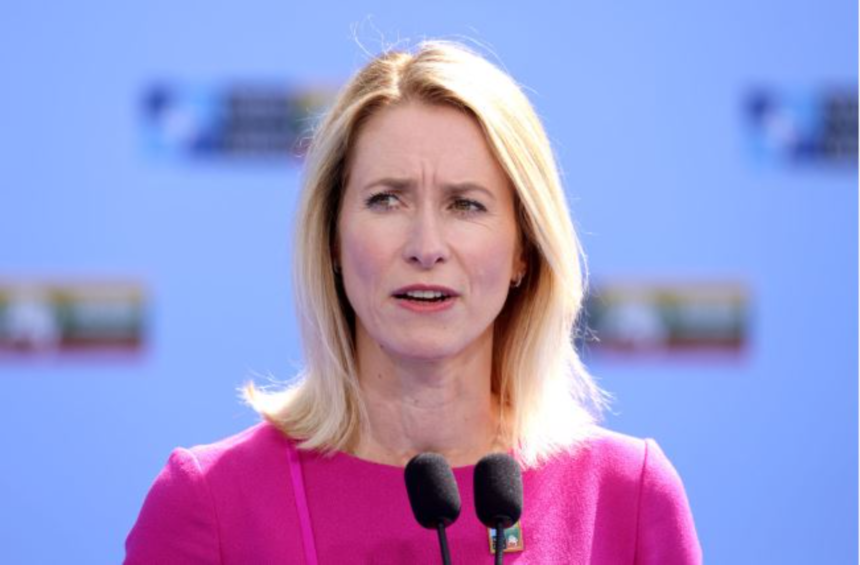The European Union is pressing Israel for updates on the implementation of a new agreement aimed at increasing humanitarian aid to the Gaza Strip, EU foreign policy chief Kaja Kallas stated on Tuesday.
Foreign ministers from the 27 EU member states are meeting today in Brussels to discuss the new Gaza aid agreement, which was largely brokered by Kallas and Israeli Foreign Minister Gideon Saar. Saar met with EU leaders on Monday, following last week’s agreement to permit the entry of essential food and fuel into the coastal enclave of 2.3 million residents.
“We have reached a common understanding with Israel to really improve the situation on the ground, but it’s not about the document, it’s about its implementation,” Kallas said ahead of the Foreign Affairs Council meeting. “As long as the situation has not really improved, then we have not done enough,” she added, reiterating calls for a ceasefire.
The precise details of the agreement remain unclear. However, EU officials have dismissed any cooperation with the Israeli-backed Gaza Humanitarian Fund due to ethical and security concerns. Prioritizing the opening of more border crossings and allowing more aid trucks into Gaza is paramount, with officials ultimately aiming to establish an observation point at the Kerem Shalom border crossing.
Calls for Review of EU-Israel Relations Amidst Humanitarian Concerns
Several European nations, including Ireland, the Netherlands, and Spain, are increasingly advocating for a review of the EU’s relationship with Israel in the wake of the Gaza conflict. A European Commission report found “indicators” that Israel’s actions in Gaza may be violating human rights obligations stipulated in the agreement governing relations with the EU. However, the bloc remains divided on how to proceed.
Dutch Foreign Minister Caspar Veldkamp noted that public pressure regarding Israel’s conduct in Gaza made this new humanitarian agreement possible even without a ceasefire. “That strength of the 27 EU member states is what I want to preserve now,” he said.
Spanish Foreign Minister Jose Manuel Albares Bueno confirmed that the details of the agreement are still under discussion and that the EU will monitor the results to assess Israel’s implementation. “We don’t know if we will know how it works,” he stated. “It is very clear that this agreement is not the end. We must stop the war.”
The war in Gaza began after Hamas – the Palestinian group designated as a terrorist organization by the US and EU – attacked Israel on October 7, 2023, killing approximately 1,200 people and taking 251 others hostage. Most hostages have been released during previous ceasefires. Since then, Israel’s war in Gaza has killed more than 58,000 Palestinians, over half of them women and children, according to the Gaza Ministry of Health.
EU Commissioner for Humanitarian Aid and Crisis Management, Hajda Lahbib, observed the entry of some aid trucks into Gaza but stressed, “not enough.” “The situation is still very dangerous, very violent, with bombardments continuing on the ground, so our humanitarian partners cannot operate. This is the reality, we need a ceasefire,” she concluded.







